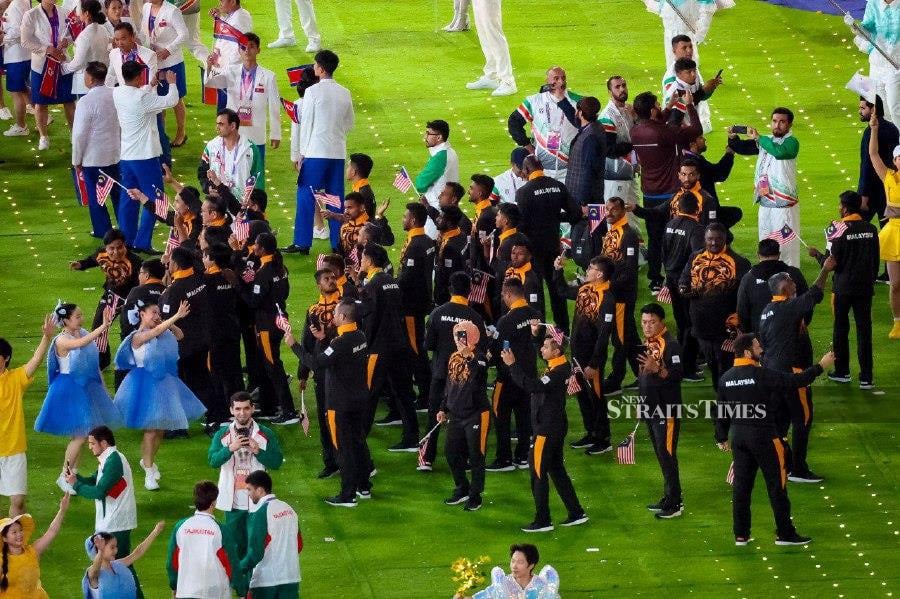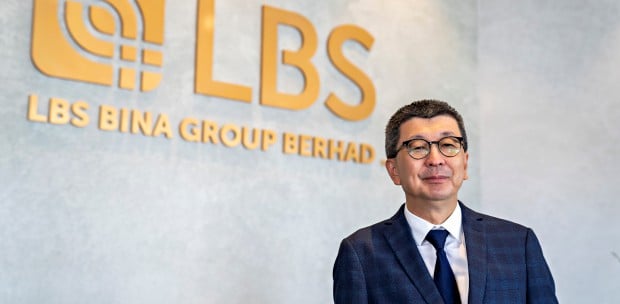KUALA LUMPUR: The Malaysian contingent released a series of statistics, proclaiming their satisfaction with the performance of the 289-member team at the Hangzhou Asian Games.
The team exceeded their medal target by winning 32 medals, with 18 of those earned in Olympic sports.
Officials also used the athlete-to-medal ratio as a yardstick, revealing that this year's ratio was nine athletes to one medal.
However, highlighting this ratio can be misleading because, had Malaysia only sent the squash team, equestrian Qabil Ambak, and sailor Nur Shazrin Latif, the ratio would be exceptional.
Of the medal winners in Olympic sports, diving contributed five medals, followed by cycling (four), athletics (three), sailing (three), badminton (one), equestrian (one), and artistic gymnastics (one).
Despite these satisfactory statistics, it remains unclear how many sports or athletes will actually have a chance to win the country's first gold medal at the Paris Olympics next year.
A Malaysian official recently stated that Malaysia's Asian Games performance would serve as a reflection of their prospects for Paris 2024.
If that is the case, Malaysia have significant gaps to fill because the performance in Olympic sports was not particularly impressive.
Based on the performance in Hangzhou, only badminton pair Aaron Chia-Soh Wooi Yik seem to be a top contender to end Malaysia's gold wait in Paris.
Of course, track cyclist Azizulhasni Awang, who did not compete at the Asian Games, has a chance in Paris provided he is in his best shape.
Another cyclist, Shah Firdaus Sahrom is gaining confidence after his bronze medal at last year's Birmingham Commonwealth Games and the two medals won in Hangzhou.
Perhaps, sports authorities should consider Shah a serious Paris contender and invest more in his training.
As for men's singles Lee Zii Jia and women's doubles Pearly Tan-M. Thinaah, their progress will depend not on skill but on stamina and mental strength.
The diving team were the most impressive among Olympic sports in Hangzhou in terms of medal count, but there are concerns that they are not developing as expected and may struggle to win medals in Paris.
They failed to win medals in Tokyo 2020, disappointing fans who expected Malaysian diving to be among the world's best.
Diving team manager Leong Mun Yee admitted after the Games that the team can only set short-term goals due to a lack of quality backup divers.
This is an issue that sports authorities must comprehensively address to elevate Malaysian diving.
Azeem Fahmi and Shereen Samson Vallabouy stood out in the Malaysian athletics team in Hangzhou, but they are still far from being among the world's best and may not progress past the opening heats of their respective men's 100m and women's 400m if they qualify for the Olympics.
In equestrian, sailing, and artistic gymnastics, Malaysia are also not among the world's best, so winning medals in Hangzhou should not lead fans to become overly excited.
The national hockey team had hoped for gold in Hangzhou but finished sixth, making it challenging to secure a Paris ticket through the qualifiers next year.
Malaysian hockey requires a larger pool of quality players. Currently, none of the youth players preparing for the Junior World Cup seem capable of replacing the veterans and representing the senior team.
In conclusion, the Podium Programme needs a revamp as Malaysia are struggling to produce quality athletes.
The Youth and Sports Ministry, along with other sports experts, should analyse, improve and introduce new strategies to enhance performance at both the elite and grassroots levels.
The Road to Gold (RTG) initiative, designed to support athletes in reaching their peak in Paris, must establish clearer goals for producing an Olympic champion.
It might be a good idea to shift our focus away from winning an Olympic gold in Paris next year and instead concentrate on achieving this goal at the 2028 Los Angeles Games.
Paris may not present the most favourable circumstances for success, and by aiming for 2028, we can allow more time for comprehensive preparation and development of our athletes.
This long-term approach will offer a better opportunity to produce the elite talent needed to compete at the highest level and stand a real chance of securing that elusive Olympic gold in Los Angeles.
Ajitpal Singh is the Sports Editor of NST






